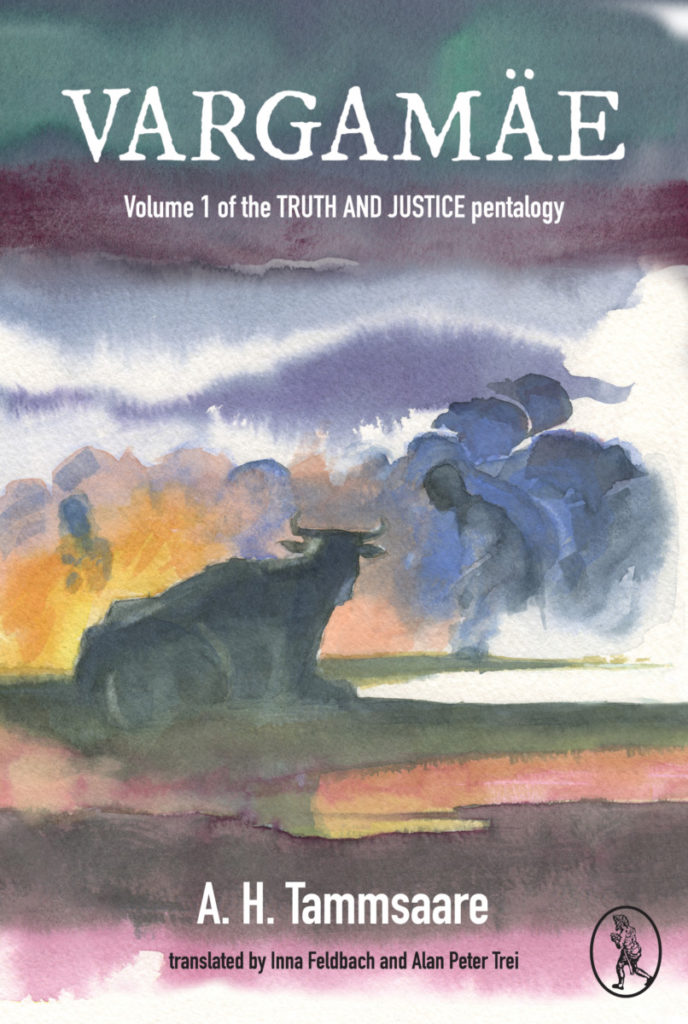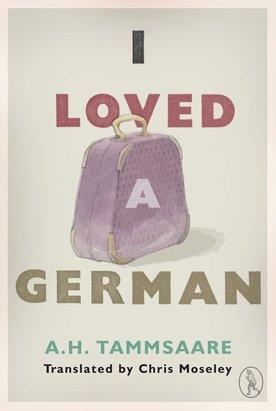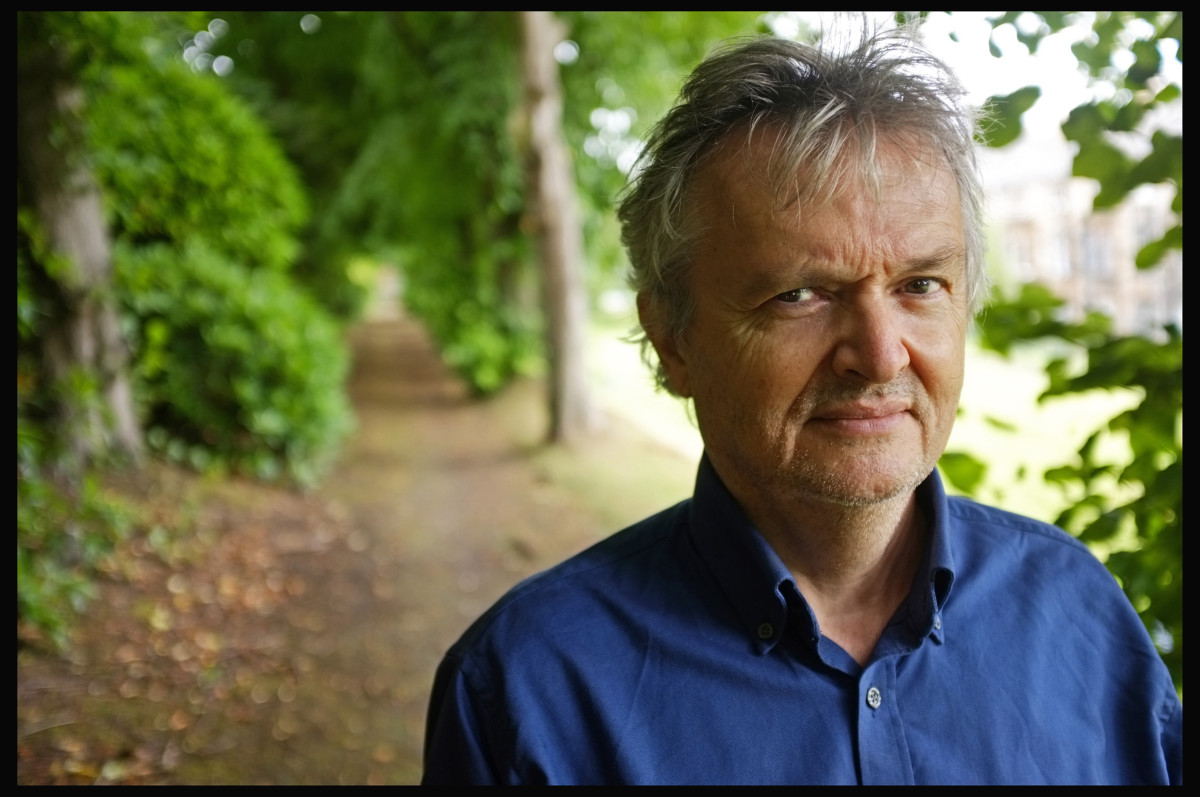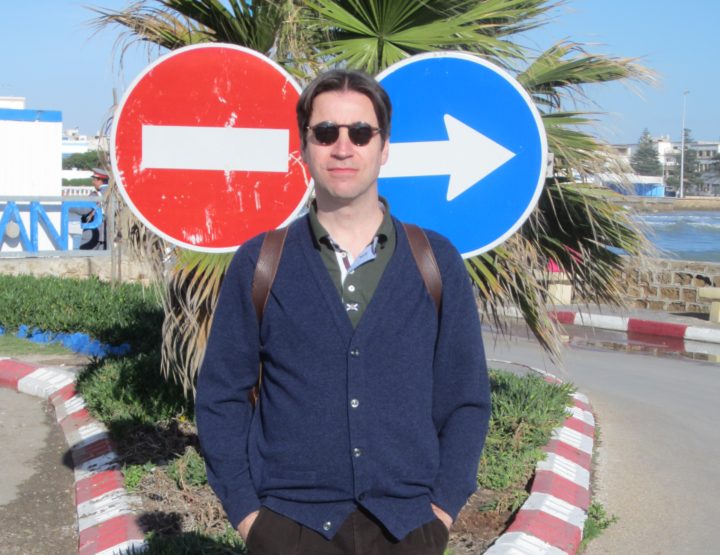Allan Cameron is a Scottish writer, translator and publisher who lives in Glasgow. He has already published several books of Estonian literature, by A. Hansen-Tammsaare, A. Ivanov, M. Saat and R. Raud. Anton Hansen-Tammsaare’s most famous novel Vargamäe, Truth and Justice Vol. 1 was also published by him this year – which was a historical event for Estonian literature as well.
L.K: You have had a very exciting and versatile life – you have lived in…. What interesting and useful things has living in many different countries taught you about people and books?
A.C: My experience of living abroad during school holidays in Nigeria (5-11) and what is now Bangladesh (11-17) obviously made me aware of cultural diversity. When I was thirteen or fourteen, I started to learn Bengali. I was interested in languages, but I had also read that Orwell criticised his father for having lived in Burma for many years without learning Burmese, and my father was no different. I have to admit that I sounded better than I was. There are dialects, and perhaps my text book was a standard form. Most of my friends were from Muslim families who had fled India and their native tongue was Urdu. I liked taking the bus and trying to speak to my fellow travellers, but I was the only European and they must have thought me pretty strange. So mainly I spoke Bengali to my parents’ servants, and this was well received.
Books had always been important to me, and I moved to grown-up literature very early. My sister told me that I read Oscar Wilde’s A Picture of Dorian Gray at the age of eleven. Later she bought me his complete works, which I read from cover to cover, and I have always been a fan. However, the book that remains deeply ingrained is Tolstoy’s Resurrection, which I found in an American edition in a second-hand bookshop in Dhaka. This really did change my life. First of all, it made me realise that whatever sufferings I was going through were as nothing compared to what was all around me. It also convinced me that I should never allow anyone to serve me at home. So, when the bearer asked me if I wanted something to drink, I would say that I would get a drink myself if I needed one. He was a little offended and stopped serving my sisters too. My mother complained to me that my sisters were complaining, and I learnt that principles, even seemingly innocuous ones, can cause considerable strife, because human relationships are governed by unwritten rules and habits that most people will instinctively defend. All this was Tolstoy’s fault, and I mentioned the American edition, because until quite recently all British editions have been translations of the version censored by the Tsarist regime, and therefore deprived of all their revolutionary force. Had I read the censored version, as I now have, maybe I would have continued to take the bearer’s drinks.
I strongly believe that novels are good for us – an exercise in empathy – but perhaps publishers, writers and translators spend too much time with books and this can lead them to forget that human relationships are still the most important thing.
L.K: Nowadays, there are so many books released every year some people may think: why bother publish even more? What has led you to open your own publishing house?
A.C: There can never be too many books! Just as there can’t be too many conversations, because language is what people do.
Like many things in my life, I got into publishing by chance. I had already translated well over twenty books from Italian, and I had had two novels of my own published in Edinburgh. I then wrote a non-fiction work on language, and it had attracted the attention of some leading literary figures, so I was slightly upset when my publisher wanted to make changes to it (he may have been right). I decided to strike out on my own and publish it myself. Strangely it was quite successful and received further plaudits. I then incorrectly assumed that publishing is an easy business. I went into translated novels and initially lost a lot of money, which I have since been trying to pay off. It is difficult to assess whether this was the right thing to do. The upside of publishing is that it’s a collaborative exercise, unlike writing and translating which are solitary occupations.
L.K: In recent years, you have also published many Estonian books. How did you “find” Estonian literature, what led you to it?
A.C: The fate of small nations has always been important to me. I have also been fascinated by lesser-spoken languages. This is in part because my mother was a Gaelic-speaker, and I spent some summer holidays on a croft in the Highlands where Gaelic was spoken. My wife is a Gaelic-speaker and my son goes to a Gaelic school. My mother’s attitude to her native tongue was strangely conflicted. She was both proud and ashamed of it. She identified it with the peasantry, and felt that she had risen above it. So, I can easily understand the conflicted attitudes of Oskar in Tammsaare’s I Loved a German, because a people who have been excluded over many centuries rebel mentally against their status but also accept it in their actions and habits, because they have to. Once the dominant power is removed either through conflict or through a collapse of that power (or powers in the case of Estonia, caught as it was between the Teutonic Knights, Sweden and Russia), the psychological damage and uncertainty endures for some time.
On my first visit to the London Book Fair, I gravitated to the Estonian stand and had a long conversation with a woman who had been called in at the last minute, because the volcano that exploded in Iceland had prevented most people from attending. I took a copy of the pamphlet with a number of suggestions for translation, which included Mari Saat’s The Saviour of Lasnamäe – our first Estonian book.

Translated by
Inna Feldbach, Alan Peter Trei,
published by Vagabond Voices
Translated by Christopher Moseley, published by Vagabond Voices
L.K: You’ve visited Estonia. What is your impression and opinion of our country?
A.C: I first visited Estonia in 2014, and had a wonderful time. It was very interesting to meet Estonian writers and hear about their work. Like most small countries, Estonians are great linguists and this is something I greatly admire. Citizens of large countries often think of small countries as provincial, but the opposite is true. Provincialism is essentially the tendency to believe that all knowledge and good practice is contained within the entity the provincial person identifies with, but no small nation can believe this. Small nations are outward-looking, and large nations are inward-looking. The English-speaking world or Anglosphere is an extreme example of this “provincialism of the powerful”. This is why I am so committed to translated literature. English badly needs translation.
Eastern Europe generally retains some of the virtues destroyed by neoliberal economics elsewhere – a greater sense of community and a proper understanding of fundamental human values. To put it another way, they resemble the societies of my childhood in some ways (it is of course more complicated than that). It is also true that Eastern Europe is understandably quite right-wing in its attitudes, given recent history, but the problem is that when one series of problems is removed, another completely different one takes its place, and these could be just as toxic. Machiavelli argued that the truths that are useful to us in one period are not in another, so we have to adapt constantly to a changing world. This must be truer now than in his day. Having said that, I think that Estonia is dealing better with the new reality than some other countries that have emerged into the post-Soviet world.
L.K: Do you think Estonia and Scotland have something in common? What would it be?
A.C: Undoubtedly. We were more similar in the nineteenth century. The land belonged to large estates often run by people who spoke a different language. The status of smallholders and landless peasants was very similar (this is clear from the first volume of Truth and Justice), as were the economic autarky of peasantry and influence of the pastor or minister in those small societies. In fact, Scotland resembled Estonia more closely than it did England in this sense. The reason was in part climatic: large tracts of marshland, long winters with little light and relatively low populations favour a certain kind of landownership (though distance from large markets could be the decisive reason, as similar landownership existed in southern Italy and southern Spain). In Scotland much of the abandonment of the land took place in the nineteenth century and the population has since been concentrated in the more fertile “Central Belt”, which became highly industrialised (but is no longer). Our language has almost disappeared, and our culture has been weakened. The reason why Estonia is doing so much better is that it gained independence in 1918 and was able to develop sufficient self-confidence to survive the Soviet period. Scottish nationalism today is not about “land and blood”, because Scotland is a social-democratic country that would like to distribute wealth and public services more equitably, something that we’ll never achieve as part of the UK. The Scottish National Party is the only government party in Europe that actively supports immigration, acknowledging that immigration, far from being a problem, is actually a way to revitalise a society. This is perhaps the most important thing we have achieved: a new definition for small-country nationalism in the twenty-first century.
Lea Kreinin has worked as a lecturer of Estonian language and culture at several institues of higher education around the world. Currently, she handles projects involving education and the Estonian diaspora at the Estonian Institute.


